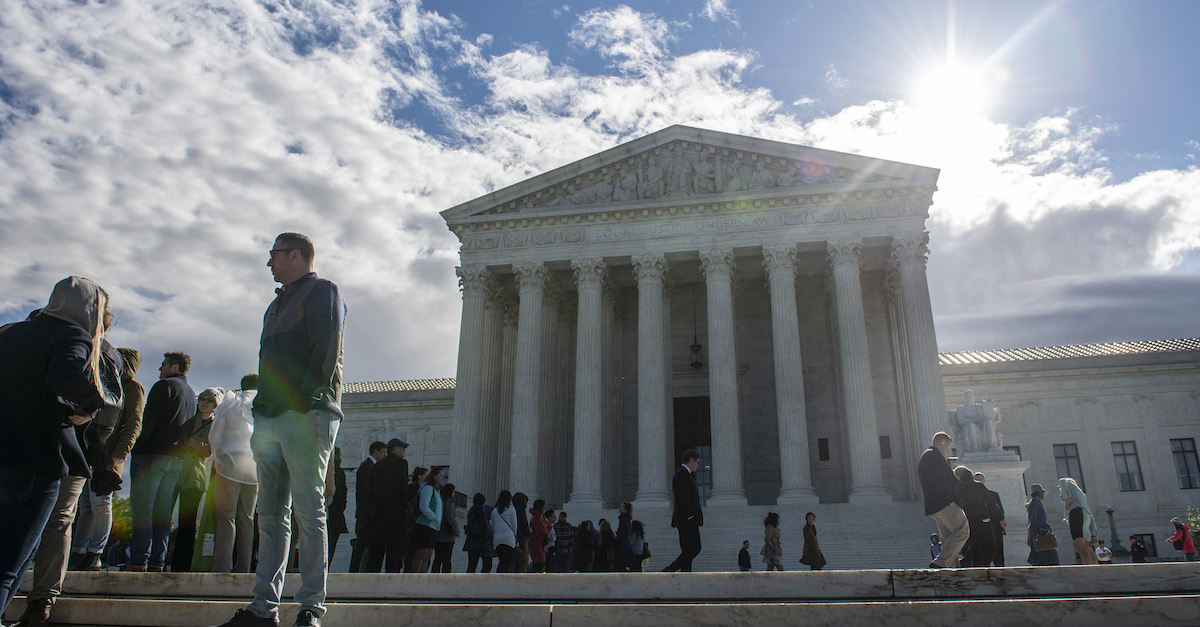
The Supreme Court on Wednesday will hear oral arguments in a case asking just how far individual states can go to prosecute undocumented immigrants for identity fraud. First, let’s get a handle on what we’re talking about.
Several cases with common fact-patterns have been consolidated with Kansas v. Garcia. Ramiro Garcia is an undocumented immigrant who was working in Kansas as a line cook. Like many undocumented immigrants seeking solid employment, Garcia used someone else’s security number when filling out his I-9 form.
Now’s a good time to point out that the practice of fraudulently using a person’s identity for employment purposes is pretty common among undocumented immigrants. For the most part, we’re not talking about “stealing” some unsuspecting person’s identity for nefarious purposes. Generally, the practice is that the would-be worker uses the social security number of a consenting American citizen (sometimes because that person has been paid for permission, and sometimes not). With official employment records, workers are better able to participate in the labor force, protect themselves from being victimized by predatory employers, and avoid compounding legal wrongdoing by paying income taxes.
Regardless of any benevolent backstory, using false information in federal employment documentation is illegal. That’s not up for debate. What is the subject of much ado, though, is who has the lucky privilege of prosecuting people like Ramiro Garcia for this particular misdeed. The State of Kansas wielded its authority against Garcia, prosecuting him for identity fraud. Garcia appealed – and had his conviction overturned on the grounds that Kansas lacked prosecutorial authority.
Immigration and any manner of fraud that goes with it usually falls onto federal turf under the Immigration Reform and Control Act (IRCA). In the specific context of employment, 8 U.S.C. § 1324a(b)(5) makes it both civilly and criminally illegal to hire undocumented immigrants; the penalties are directed not at the workers falsifying their identifies, but at the employers who knowingly hire unauthorized employees. But that’s a federal statute, and its applicability is specifically limited to federal enforcement.
The Garcia case has become a federal vs. state turf-battle royale. The Kansas Supreme Court voted 5-2 to overturn Garcia’s conviction, holding that the matter is purely federal because the IRCA preempts any state prosecutions. Twelve states have joined the SCOTUS case as amici, putting in their bid for permission to prosecute workers for falsifying documents.
The Garcia case will rest on a complex analysis of preemption law; that’s the legal principle that under our governmental system, federal statutes can foreclose individual states from acting within a specific legal arena. In analyzing whether Kansas and other like-minded states have the authority to prosecute others for identity fraud, a key issue will be congressional intent. If Congress meant to keep enforcement rights with the feds, Kansas and others will need to back off. If SCOTUS were to come to the alternative conclusion, it could mean that states have leverage to become far more aggressive in prosecuting undocumented immigrants.
State prosecution for I-9 fraud has potential to cause consequences far beyond what individual states may intend. According to studies, most undocumented immigrants pay taxes using false social security numbers. That means increasing prosecutions for I-9 fraud will almost certainly result in decreased tax revenue. Moreover, the outcome in Kansas v. Garcia has potential to affect state-versus-federal turf battles outside the ambit of immigration law. Kansas and its amici may have opened quite the can of worms here; should SCOTUS provide specific guidance defining the limits of state authority, all 50 states will have to live with those rules, even when we’re not talking about line cooks and falsified work papers.
[Image via Eric Baradat/AFP/Getty Images]